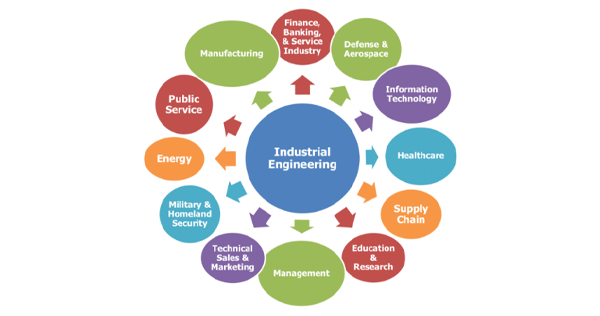
As we all know, every growing country needs infrastructure development to attract more capital investment from foreign regions to improve its productivity.
And to make these things possible, industrial engineers and their innovative spirit play a pivotal role.
For example, Germany’s engineering sector is the third-largest player in the world, after China and the United States, with substantial revenue and a highly skilled workforce. (McKinsey)
Which will make us realize that industrial engineering in Germany is their cornerstone of world-leading developments.
But similar to them, how can any terrain benefit from these extraordinary talents and make their global footprints wider and longer?
Well, don’t worry, this blog post aims to cover everything about this segment and provide valuable insight to the readers.
Let’s begin!
Key Takeaways
- Explaining how pursuing this field will provide you with a respected professional.
- Understanding the immersive problem-solving abilities of these engineers
- Decoding a vast variety of job opportunities.
- View salary packages among different levels

Respected Profession
Though it may not be the first thing that jumps to mind, many pursue a vocation with the hope that they will earn respect from their peers along the way. The good news is that many people consider industrial engineering to be a respected profession.
The combination of technical knowledge and managerial skills required to work in the field is unlike many other jobs and takes time and dedication. This can lead to a substantial improvement in career prospects when compared to the traditional industrial engineering path.
Industrial engineers typically have extensive training in a number of areas, such as computer programs and industrial equipment. This can help to make their performance more effective. Company managers, executives, and other stakeholders see the value in bringing on industrial engineers because they can provide value and greater efficiency than other vocations.
Interesting Facts
Employment in industrial engineering is projected to grow 12% from 2022 to 2032, with about 22,800 openings each year, according to MyFuture Career.
Problem-Solving Abilities
Some people naturally like to work through problems and come to a convenient solution. Daily activities as an industrial engineer require the ability to evaluate processes to make products or services better and more efficient. That’s not even mentioning the creativity and technical knowledge involved.
The ability to solve complex problems in a business setting is also invaluable to career growth. Solving concerns is part of the job, and those who excel at solving concerns tend to make more money and have more responsibility. Working through the various methods behind solving a problem and choosing the most logical solution hones critical thinking and reasoning as well.
Intriguing Insights
This infographic shows the different work approaches of industrial engineers.

A Wide Range of Job Opportunities
When choosing a career path, it helps to have more options available to you. Industrial engineers, because of the aforementioned problem-solving abilities and deep knowledge requirements, have transferable skills. Their work often revolves around making things automated and accessible to promote cost-effectiveness and human effort reduction.
Industrial engineers work in healthcare, research and development, finance, transportation, technology, manufacturing, and a litany of other industries. As industrial engineers, there are more choices available to find the best fit and align with passions and career goals, as there are more choices available to find the best fit and align with passions and career goals. That kind of flexibility is invaluable and requires less “settling” that may not be offset by financial gain.
Salary
At the heart of most vocations is earning potential. We all want to do things that we love, but there is nothing wrong with making a good living in the process. Fortunately, industrial engineers enjoy substantial salaries, allowing for a high quality of life.
The average annual salary for industrial engineers is $78,861, which is impressive and can increase based on factors such as education level, geographic location, and industry type.
Obtaining a degree in industrial engineering is merely the starting point; if you aim for career progression and development, numerous opportunities await you. It is possible to earn a postgraduate education or even a Professional Engineering (PE) license. This will only improve your earning potential, not to mention expand potential employment opportunities that may not have been otherwise available.
Frequently Asked Questions
Ans: Industrial engineers focus on efficiency, balancing factors such as time, number of workers needed, and available technology to accomplish goals safely and within budget.
Ans: The future of industrial engineering is shaped by technological advancements, sustainability, and the need for efficiency.
Ans: Many people consider industrial engineering to be a respected profession because of the skills and knowledge required to work in the field.